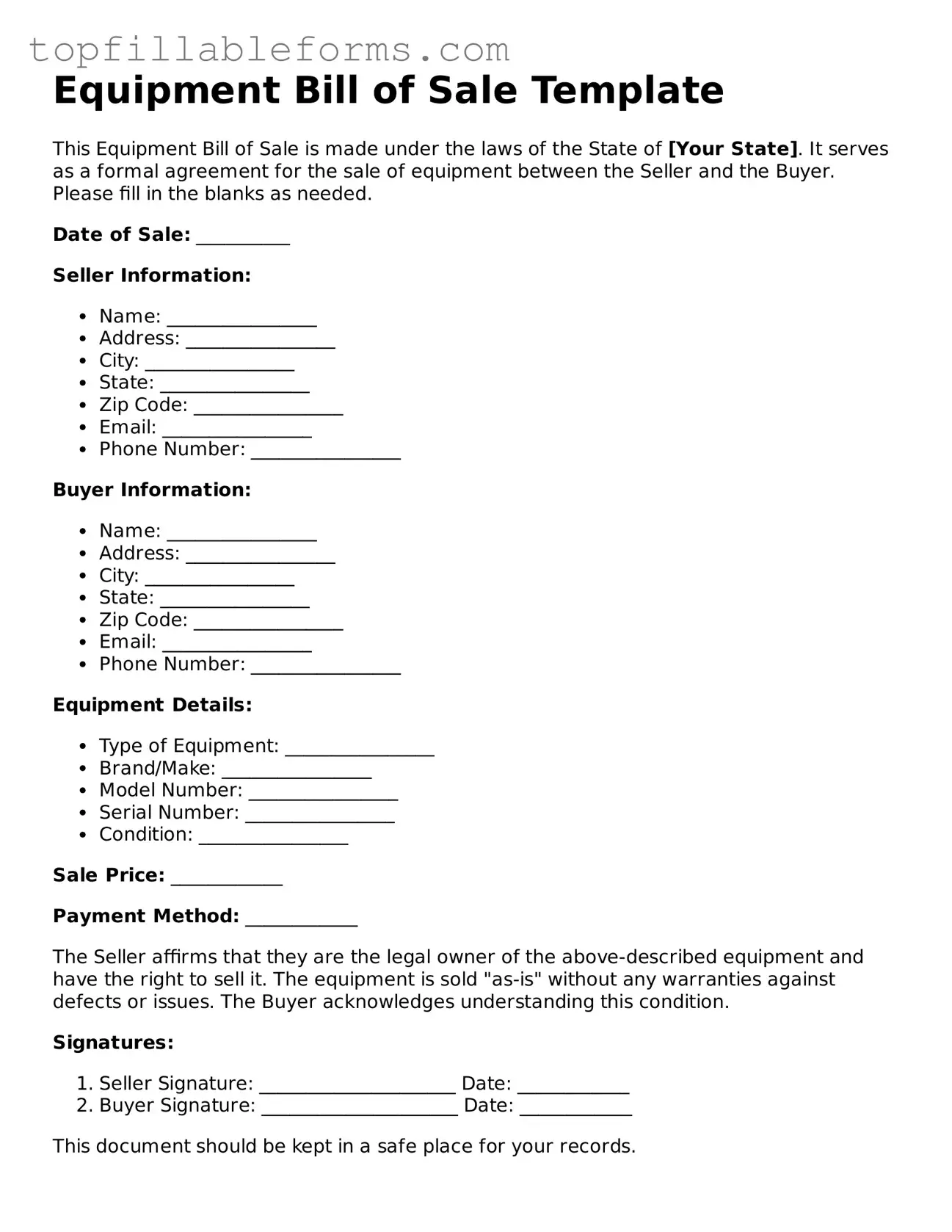Free Equipment Bill of Sale Form
An Equipment Bill of Sale is a legal document that records the transfer of ownership of equipment from one party to another. This form serves as proof of the transaction, detailing the equipment's specifications, sale price, and the parties involved. Utilizing this document can help ensure a smooth transfer and protect both the buyer's and seller's interests.
Open Equipment Bill of Sale Editor Here

Free Equipment Bill of Sale Form
Open Equipment Bill of Sale Editor Here
Finish the form now and be done
Finish your Equipment Bill of Sale online by editing, saving, and downloading fast.
Open Equipment Bill of Sale Editor Here
or
▼ PDF File
